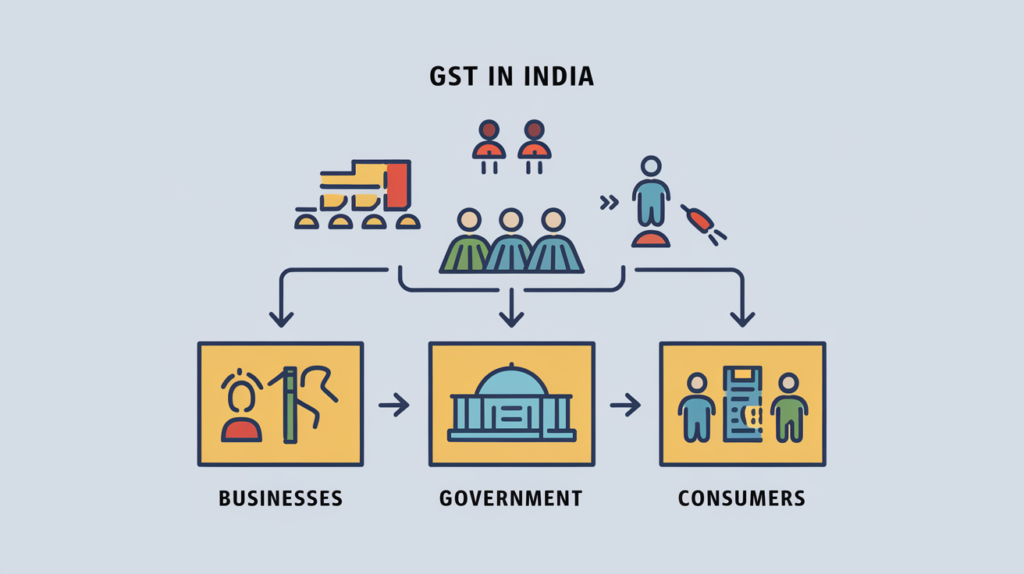How to start up a company in India

Table of Contents
1. Introduction to Starting a Company in India
India offers a fertile ground for new businesses, with its rapidly growing economy and entrepreneurial ecosystem. Whether you’re planning to start a tech startup or a traditional business, understanding the market, regulatory environment, and opportunities is critical to success. This guide provides a comprehensive breakdown of how to start a company in India, covering each essential step for aspiring entrepreneurs.

2. Choosing the Right Business Structure
The first crucial decision is selecting the right business structure for your startup. In India, there are several business entities you can register as:
- Sole Proprietorship: Best for small businesses with a single owner.
- Partnership: Ideal for businesses with two or more owners sharing responsibilities.
- Limited Liability Partnership (LLP): Provides the flexibility of a partnership with limited liability protection.
- Private Limited Company: Suitable for startups aiming for external funding, offering limited liability and a more structured approach.
Each structure has its pros and cons in terms of liability, taxation, and regulatory compliance, so choose wisely based on your long-term goals.
3. Legal Requirements for Starting a Company
India’s legal landscape requires startups to follow specific regulations and compliance protocols. Key steps include:
- Registering the business entity: Through the Ministry of Corporate Affairs (MCA) portal.
- Acquiring PAN and TAN: For taxation purposes.
- Registering for GST: Mandatory for businesses exceeding a certain turnover.

Additionally, you might need specific licenses based on your industry, such as the FSSAI license for food-related businesses or pollution control clearance for manufacturing industries.
4. How to Register Your Company Online
Registering a company in India has become more streamlined through the MCA’s online portal. Here’s a simplified version of the steps:
- Apply for Digital Signature Certificate (DSC): Required for signing documents electronically.
- Obtain a Director Identification Number (DIN).
- File for Name Approval: Through the RUN (Reserve Unique Name) service.
- File the Incorporation Documents: Along with the Memorandum of Association (MoA) and Articles of Association (AoA).
Once approved, you’ll receive a Certificate of Incorporation from the Registrar of Companies (RoC), officially recognizing your business.
5. Understanding Taxation for Startups
Taxation plays a significant role in your company’s financial structure. Key taxes include:

- GST (Goods and Services Tax): Applicable to businesses selling goods or services in India.
- Corporate Tax: For businesses structured as companies.
- Startup Tax Benefits: India offers several tax exemptions for eligible startups under the Startup India Initiative.
Understanding the tax structure can help you plan your finances better and maximize potential tax benefits.
6. Finding the Right Location for Your Business
The location of your business can affect operational costs, logistics, and even branding. With increasing digitalization, many startups are opting for virtual offices, but it’s essential to choose the right model based on your company type.
Consider aspects like proximity to clients, availability of skilled labor, and infrastructural support when selecting a physical location.
7. Getting Initial Funding for Your Startup
Funding is one of the biggest challenges for new entrepreneurs. In India, you can explore several avenues:
- Bootstrapping: Using personal savings or revenue to grow your business.
- Angel Investors and Venture Capitalists: Ideal for startups with high growth potential.
- Government Grants and Loans: The Indian government offers various schemes like Mudra Loans and Startup India Seed Fund to help new businesses with financial support.
Ensure you have a solid business plan before approaching investors, and be clear about the equity and terms you’re willing to offer.
8. Developing a Business Plan
A well-crafted business plan serves as the foundation for your company’s success. Include the following key components:
- Executive Summary: A snapshot of your business and goals.
- Market Analysis: Understanding your target audience and competition.
- Revenue Model: How you plan to generate income.
- Financial Projections: Your expected income, expenses, and profitability timeline.
A robust business plan not only guides your operations but also attracts potential investors.
9. Hiring and Building a Team
The success of your startup depends largely on your team. When hiring, keep in mind:
- Employment Contracts: Must clearly outline roles, salaries, and responsibilities.
- Legal Compliance: Including EPF, ESIC, and labor laws.
- Culture Fit: Look for candidates who align with your startup’s mission and values.
A strong, motivated team is crucial to driving your business toward success.
10. Government Schemes for Indian Startups
India has introduced several government schemes to encourage entrepreneurship:
- Startup India Initiative: Provides tax exemptions, reduced compliance burdens, and easier access to funding.
- Mudra Loans: Offers micro-credit to small and medium-sized enterprises.
- SIDBI Startup Mitra: Facilitates connections with funding agencies, VCs, and accelerators.
These programs can be invaluable in providing early-stage support for your company.
11. Building an Online Presence and Marketing Strategy
In today’s digital age, having an online presence is essential. Start by creating a professional website and use platforms like social media to market your business. Some key tips:
- SEO: Ensure your website is optimized for search engines to attract organic traffic.
- Content Marketing: Provide value to potential customers through blogs, videos, and social media content.
- Social Media Marketing: Platforms like Instagram, LinkedIn, and Twitter are vital for reaching your target audience.
An effective marketing strategy can significantly boost your startup’s visibility and growth.
12. Compliance and Ongoing Requirements
Once your company is registered and running, staying compliant with legal and financial regulations is essential. This includes:
- Annual filings with the RoC.
- Filing GST returns.
- Maintaining accounting records: Accurate bookkeeping is vital to avoid any legal issues.
Failure to comply with these can lead to fines and other legal complications.
13. Conclusion
Starting a company in India is an exciting and rewarding journey. By following the right legal, financial, and operational steps, you can set your business up for long-term success. With India’s supportive ecosystem for startups, the opportunities are endless.
Read more Topics: Click Here
This content Research by : Branding Ninja

